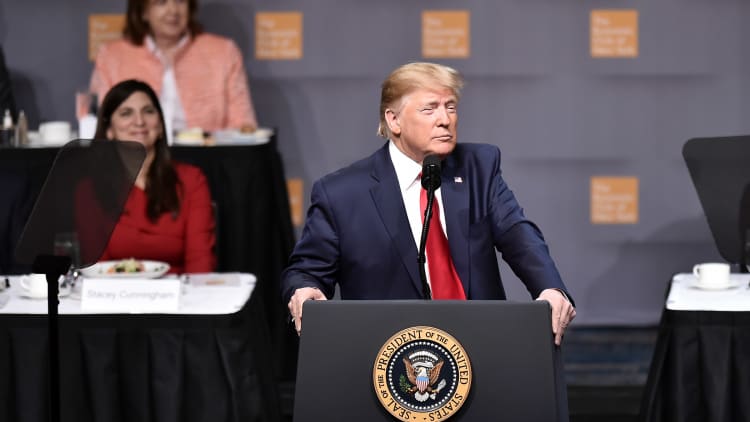
The mood in Beijing about a trade deal is pessimistic due to President Donald Trump's reluctance to roll back tariffs, which China believed the U.S. had agreed to, a government source told CNBC's Eunice Yoon.
Stocks opened down on the trade headlines.
The U.S. and China agreed to work on a limited "phase one" trade deal in early October. China has pushed for a removal of the additional duties imposed on each other's products in different phases, as part of the deal. Chinese Commerce Ministry spokesperson Gao Feng said earlier this month that the two sides had reached an agreement on the tariff rollback.
However, Trump said a week ago that he has not agreed to scrap tariffs on Chinese goods, contradicting the signal from China and dampening hopes about a coming resolution to a jarring trade conflict.
The Chinese are looking carefully at the political situation in the U.S. including the impeachment hearings and the presidential election, the source said, adding the officials are wondering if it is more rational to wait things out since it is unclear what Trump's standing will be even in a few months.
There is disagreement over issues such as a specific number of agricultural purchases, the source said. The Chinese are resisting because, in part, they could risk alienating other trading partners, the source told CNBC.
The trade war between the world's two largest economies has dragged on for nearly two years. The Trump administration has slapped tariffs on more than $500 billion in Chinese goods, while Beijing has put duties on about $110 billion in American products.
Trump hopes to resolve outstanding gripes with Beijing's trade practices, including forced technology transfers and intellectual property theft, while securing more Chinese purchases of U.S. agricultural goods.
The White House did not immediately respond to CNBC's request for comment.
The Chinese Ministry of Commerce said Sunday that the two sides had "constructive discussions" about "each other's core concerns" and agreed to remain in close contact. Meanwhile, White House economic advisor Larry Kudlow said Friday that the two countries were "getting close" to reaching a trade deal.


